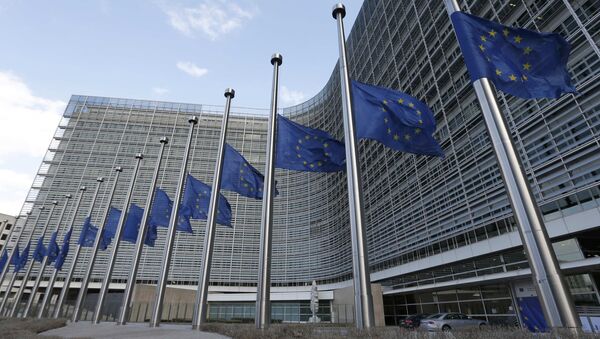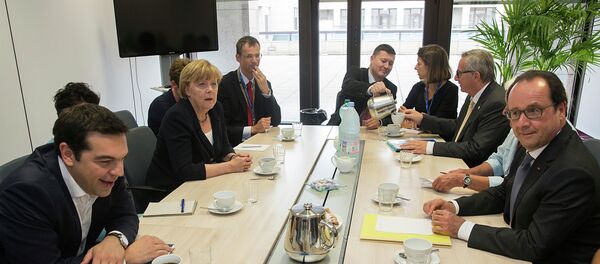The European Union will not automatically extend anti-Russian sanctions due to expire in late-July. The issue will be discussed at the EU summit in Brussels on June 28-29.
Some European nations have already opposed the extension of economic sanctions at the technical level. Currently, Brussels is considering the removal of some of the restrictions.
The fact that sanctions will not be prolonged automatically does not mean they will not be prolonged at all, Alexei Panin, head of the Moscow office of the consulting company Urus Advisory, said.
"Political discussions themselves are non-binding. Those leaders who want normal relations with Moscow may oppose the automatic prolongation of sanctions and start discussions. But the sanctions will be extended anyway," he told Sputnik Radio.
He noted that the EU policy requires country members follow the lead of the leading European nations.
"This is one of the difficulties for the foreign policy of European countries. On the other hand, they are between the hammer and the anvil. Sanctions are damaging their economies. But should they oppose the united stance of Brussels? Or should they block separate decisions?" the analyst said.
If sanctions are not prolonged at the initial level their extension would require the unanimous decision of all the 28 EU members. If any of the states say "no," then the sanctions would be lifted.
"Under the current EU policy it would be nonsense," Panin said.
At the same time, the analyst suggested that the initiatives of some European regions to lift anti-Russian sanctions may have an effect on Brussels.
"Actually, this signals that EU’s stance toward Russia may soon start to change. Most of European leaders see that sanctions haven’t helped resolve the Ukrainian crisis. There have been calls to impose sanctions against Ukraine for violating the Minsk agreements. At least, it would be a constructive step," the analyst concluded.



